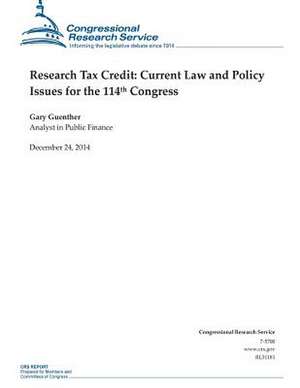Research Tax Credit
Autor Congressional Research Serviceen Limba Engleză Paperback
| Toate formatele și edițiile | Preț | Express |
|---|---|---|
| Paperback (3) | 123.43 lei 3-5 săpt. | |
| CREATESPACE – | 123.43 lei 3-5 săpt. | |
| CREATESPACE – | 123.66 lei 3-5 săpt. | |
| CREATESPACE – | 123.66 lei 3-5 săpt. |
Preț: 123.43 lei
Nou
Puncte Express: 185
Preț estimativ în valută:
23.62€ • 25.74$ • 19.90£
23.62€ • 25.74$ • 19.90£
Carte disponibilă
Livrare economică 02-16 aprilie
Preluare comenzi: 021 569.72.76
Specificații
ISBN-13: 9781506018447
ISBN-10: 1506018440
Pagini: 38
Dimensiuni: 216 x 279 x 2 mm
Greutate: 0.11 kg
Editura: CREATESPACE
ISBN-10: 1506018440
Pagini: 38
Dimensiuni: 216 x 279 x 2 mm
Greutate: 0.11 kg
Editura: CREATESPACE
